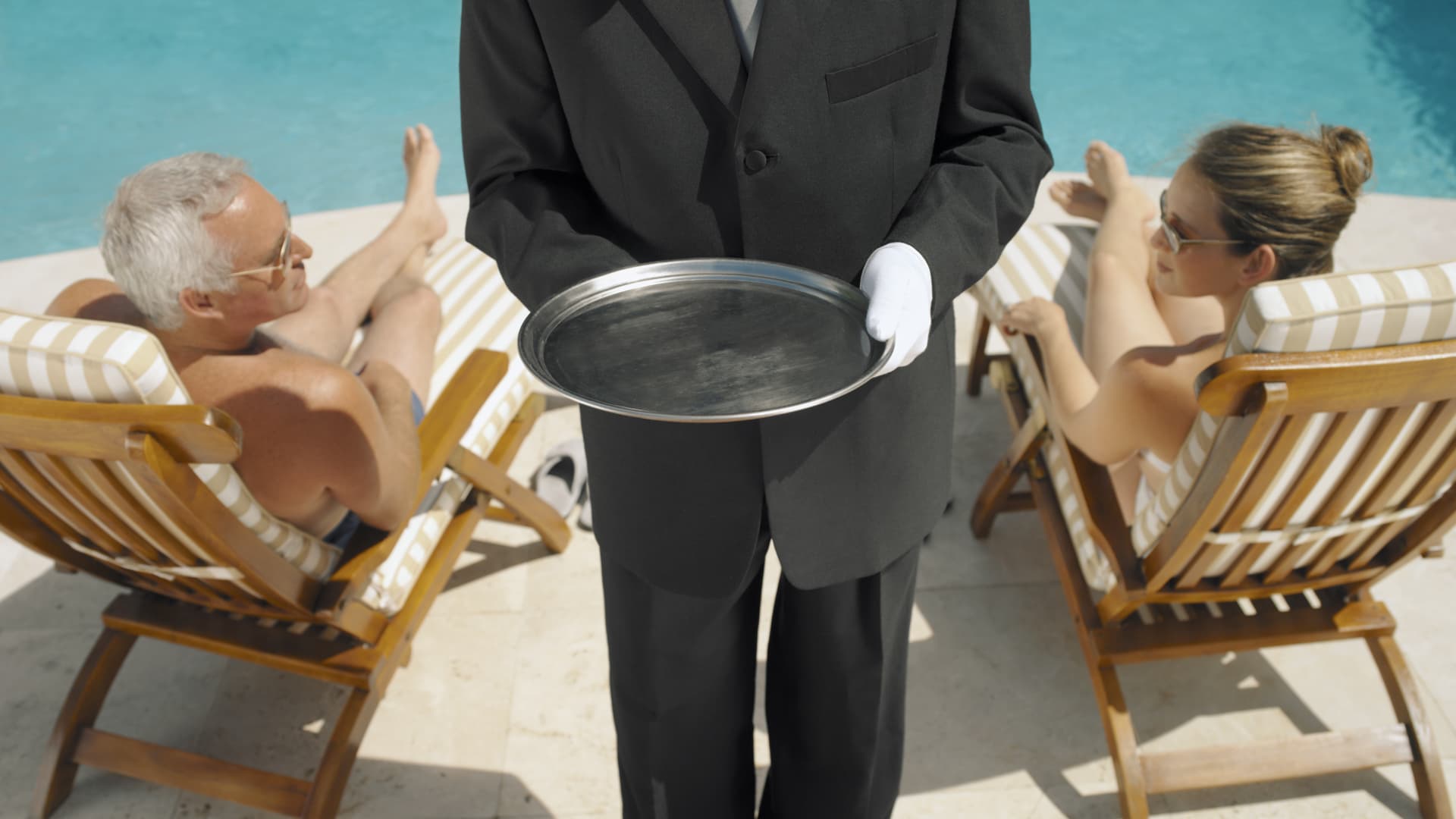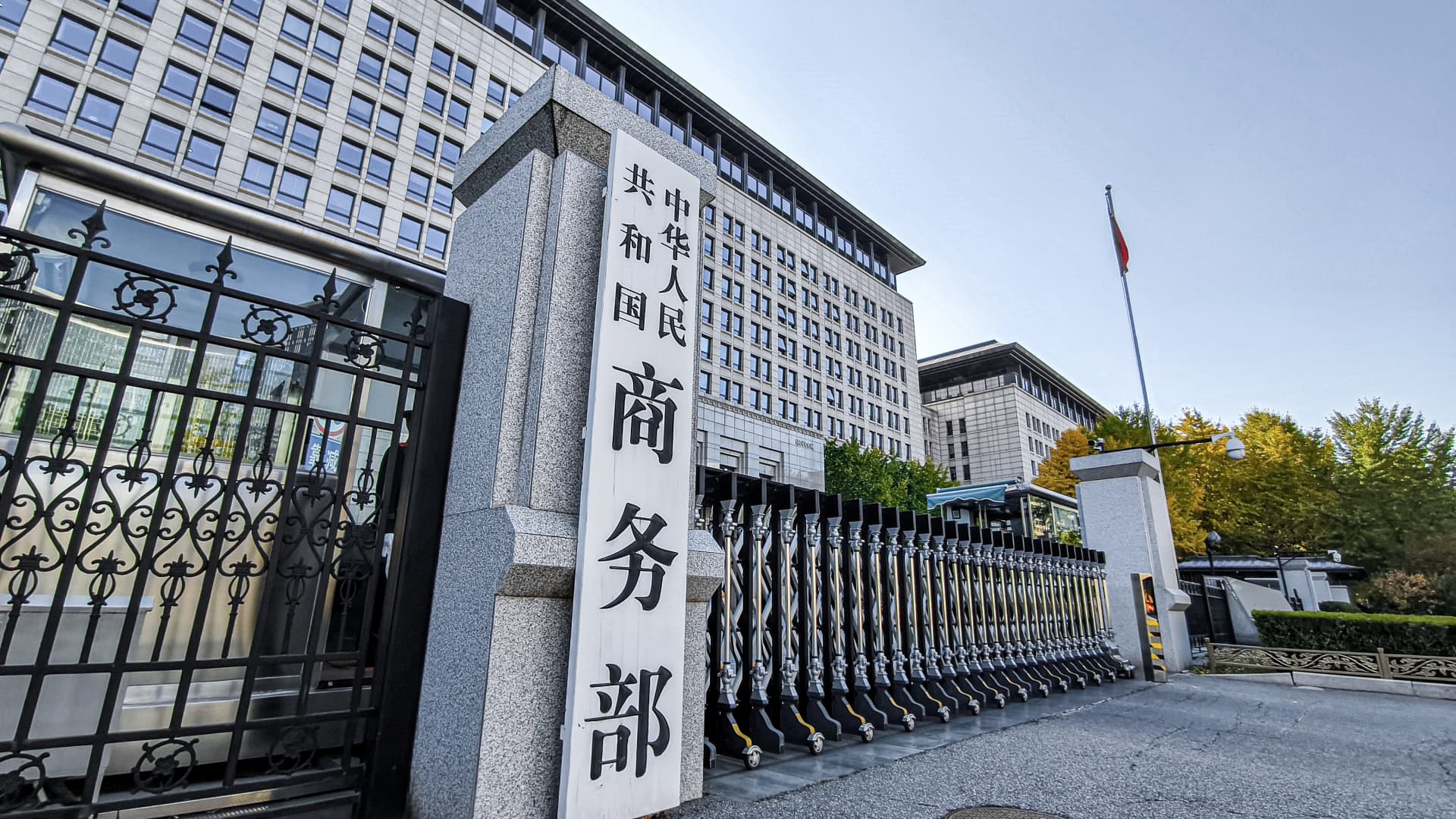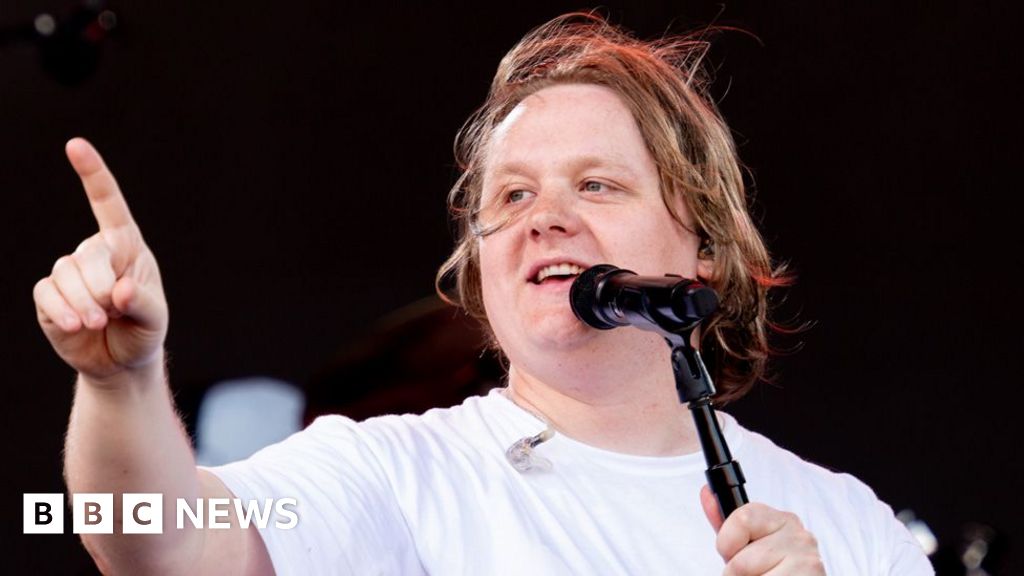The survey results, published by Expedia in March, showed that the most frowned upon behavior was walking around barefoot, with 94% of respondents deeming it inappropriate.
A close second is wearing hotel robes in the lobby (92%), followed by public displays of affection in the pool (86%), according to the survey.
Some hotels deal with these behaviors by providing subtle cues instead of a heavy-handed approach.
“I believe customers will follow the lead if you and your staff are being respectful [and] discreet,” said Reem Arbid, co-founder of The Blue Door Kitchen & Inn.
Guests who speak loudly on their phones is another common issue, she said. Staff can politely ask guests to take the call elsewhere, she said, but “the reaction is not always positive.”
Gently signaling hotel protocols can encourage guests to be more mindful, she said, citing the example of staff speaking in quieter voices.
A subtle approach can also work with other forms of inappropriate behavior, such as wearing unsuitable attire, which can turn off other guests.
“At a high-end retreat, showing up in pajamas or barefoot around shared spaces can come across as disrespectful,” said Ariel Barrionuevo, managing director of La Coralina Island House in Panama.
However to some, going barefoot is more about safety than decorum, said Aidan O’Sullivan, general manager of Kilkea Castle, a resort and golf club in Ireland.
Shirts and shoes are required in all on-property restaurants, and the hotel encourages guests to be clothed while in public parts of the castle. Though some may not be dressed accordingly after a swim or spa visit, “it is not the norm,” he said.
Nevertheless, the hotel’s 18-hole golf course still enforces stricter dress codes on the greens, and prohibits non-collared shirts and tracksuits, O’Sullivan said.
More pressing issues
Others in the industry, however, say they are taking a more modern approach to luxury standards.
“Whether it’s PJs at breakfast, pups in beds, or kids enjoying the pool — we welcome it all,” said Sam Jagger, managing director of The Maybourne Beverly Hills.
The hotel instead prioritizes “respect for the safety and privacy of fellow guests and our team,” he said.
Mary D’Argenis-Fernandez, founder of hospitality training company MDA Hospitality Solutions, said strict dress codes are not as common as they used to be. To her, poor behavior — such as public outbursts aimed at staff members or other guests — is a bigger problem, she said.
“It’s these situations, that are sometimes uncalled for, that are more concerning to those who work in the industry,” she said, noting that team members are trained to de-escalate such situations by moving the commotion to a private area.
When disruptive behavior occurs in luxury properties, staff could be labeled the “fun police” simply for doing their job, said Cassandra Wheeler, who was a guest service supervisor at a Hilton hotel.
“We would just laugh, smile, and tell them to have a great day,” she said. “Stressed conference attendees and local weekenders sometimes treated us like personal servants.”
Another problem highlighted in the survey are guests who hog pool chairs. Some 60% of respondents say they disapprove of travelers who do this, causing some hotels to nip this behavior in the bud.
Marriott’s Maui Ocean Club – Lahaina & Napili Towers only allows guests to reserve one additional chair, according to Expedia’s press release on the survey. And St. George Beach Hotel & Spa Resort in Cyprus simply allocates sunbeds to guests upon arrival, it added.















Leave a Reply